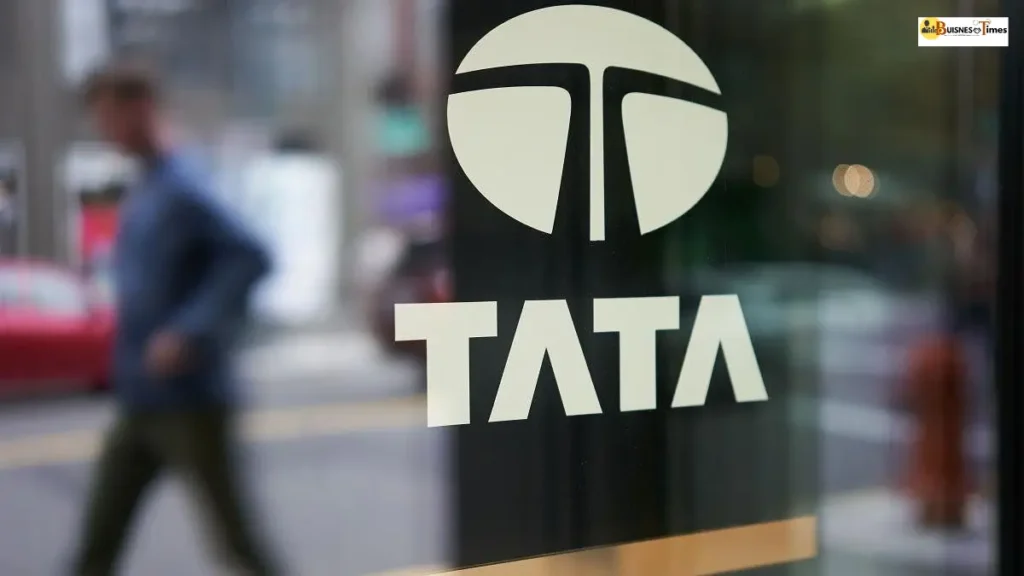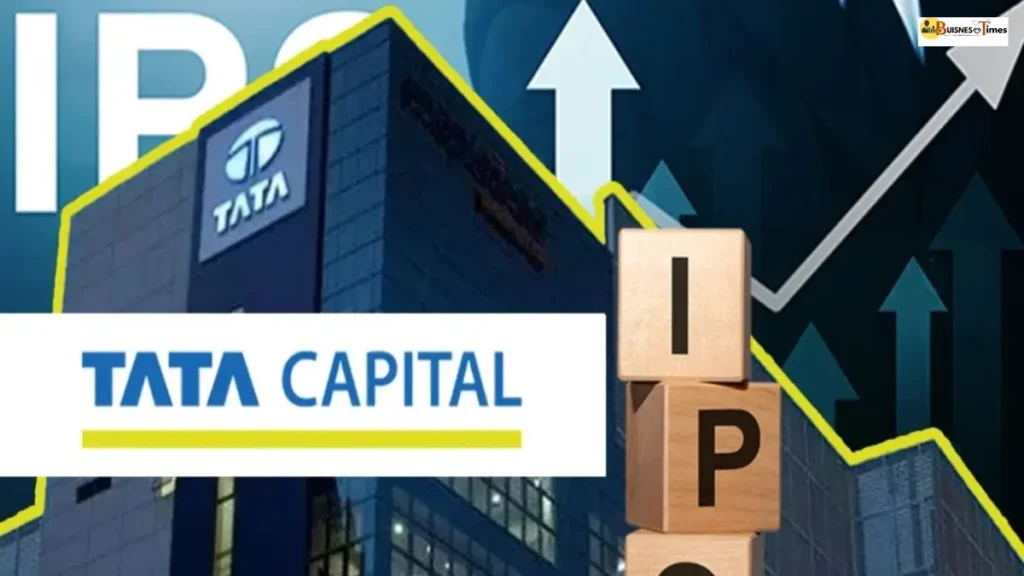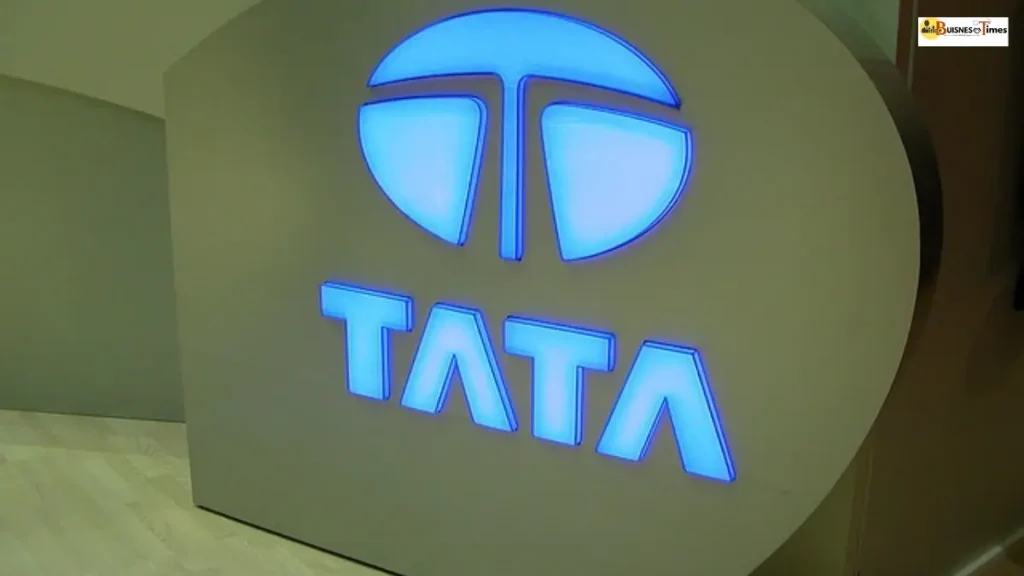Tata Capital, the flagship non-banking financial company (NBFC) of the Tata Group, is gearing up for one of the most anticipated Initial Public Offerings (IPOs) of 2025. The company is expected to hit the market later this September, making it one of the largest IPOs in the past decade.
With a gross loan book of ₹2,26,550 crore as of March 2025 and strong growth momentum, Tata Capital has captured investors’ attention. But while the IPO offers exciting opportunities, it also comes with its share of risks that potential subscribers must weigh carefully.

Why Tata Capital IPO is Coming Now
In 2022, the Reserve Bank of India (RBI) classified Tata Capital as an “upper-layer” NBFC, mandating that it must list on the stock exchanges within three years. That deadline is set to expire this September, which has prompted the company to move forward with its IPO plans.
As of now, the official listing date hasn’t been announced, but market buzz indicates a late-September timeline. Given the company’s scale and the Tata Group’s strong reputation, the IPO is expected to witness massive retail and institutional investor participation.
Tata Capital IPO: Issue Details
- Issue Size: Approx. ₹17,000 crore (among the five largest in the last decade)
- Shares Offered: 47.58 crore
- Fresh Issue: 21 crore shares
- Offer for Sale (OFS): 26.58 crore shares
- Promoter Stake Sale: Tata Sons will sell 23 crore shares
- Other Sellers: International Finance Corporation (IFC) will offload 3.58 crore shares
The price band is yet to be finalized. A small portion of shares will also be reserved for Tata Capital employees, capped at 5% of post-offer equity.
How Tata Capital Plans to Use the IPO Funds
The IPO proceeds are split into two components:
- Offer for Sale (OFS) – Funds go directly to existing shareholders (like Tata Sons and IFC) reducing their stake.
- Fresh Issue – Proceeds will strengthen Tata Capital’s Tier-1 capital base, support future lending activities, and cover IPO expenses.
Listing benefits include improved brand visibility, stronger market credibility, and enhanced access to future fundraising.

Merger With Tata Motors Finance: A Game Changer
In May 2025, Tata Capital successfully merged with Tata Motors Finance Ltd (TMFL). This move was seen as a strategic consolidation within the Tata Group’s lending businesses.
Key benefits of the merger include:
- Larger and more diversified asset base
- Expanded geographical reach
- Stronger capital position
- Synergies across lending operations
- Enhanced customer base and service offerings
Industry experts believe the merger positions Tata Capital as a much stronger NBFC with the ability to compete more aggressively in the retail and corporate lending space.
Tata Capital’s Market Standing
According to Crisil, Tata Capital is among the most comprehensive diversified NBFCs in India in terms of loan products. It has also witnessed the fastest branch network growth among its peers between FY23–FY25, recording an expansion rate of nearly 67%.
Other key highlights include:
- Credit Cost: At 1.4% in FY25, one of the lowest among NBFC peers
- Operating Cost (Opex): At 2.7%, comparable with top NBFCs like Sundaram Finance
- Credit Rating: AAA rating by Crisil, ICRA, and India Ratings – the highest possible
This strong position enhances investor confidence, although the company’s loan exposure and sector-specific risks need careful consideration.
Key Risks Investors Must Watch
While the IPO appears promising, the Draft Red Herring Prospectus (DRHP) lists several risks that may impact Tata Capital’s future performance:

- Default Risk: Stage 3 loan exposure at 1.9% in March 2025, up from 1.7% in 2023.
- Falling Provision Coverage: Declined to 58.5% in FY25 compared to 77.1% in FY23.
- High Unsecured Loans: 21% of loan book is unsecured – a potential red flag if defaults rise.
- Retail Loan Dependence: 62.3% of loan book comes from retail finance, making it vulnerable to shifts in consumer demand or repayment capacity.
- Real Estate Exposure: Nearly 34% of loans are tied to real estate – a sector prone to volatility.
- Regulatory Compliance Risks: Past instances of securities issuance exceeding prescribed limits could trigger penalties.
- Rising Borrowing Costs: Average borrowing cost increased to 7.8% in FY25 from 6.6% in FY23.
These risks highlight the importance of cautious due diligence for investors considering participation.
Tata Capital vs Peers
Here’s how Tata Capital compares with some leading NBFCs:
| NBFC | Gross Stage 3 Loans (FY25) | Credit Cost | Growth Rate FY23–FY25 |
|---|---|---|---|
| Bajaj Finance | 1.0% | 1.2% | High |
| Sundaram Finance | 1.4% | 1.3% | Moderate |
| Tata Capital | 1.9% | 1.4% | Fastest Branch Growth |
| Aditya Birla Capital | 2.2% | 1.5% | Moderate |
While Tata Capital isn’t the lowest-risk NBFC, its diversified portfolio and strong promoter backing give it a competitive edge.
Should You Invest in Tata Capital IPO?
The Tata Capital IPO is likely to attract strong demand due to:
- The Tata Group’s credibility
- Strong financial performance
- Fastest-growing NBFC among peers
- Benefits from TMFL merger
However, investors should be mindful of risks such as retail loan dependence, real estate exposure, and rising borrowing costs.
If you are a long-term investor seeking exposure to India’s growing financial services sector, Tata Capital could be an attractive addition to your portfolio. But short-term investors must prepare for volatility, especially given the large issue size and possible oversubscription.
Final Word
The Tata Capital IPO combines solid growth potential with certain sectoral and structural risks. Investors should evaluate their risk appetite and investment horizon before subscribing.
Disclaimer: This article is for informational purposes only and should not be taken as investment advice. Please consult with a financial advisor before making any investment decisions.

